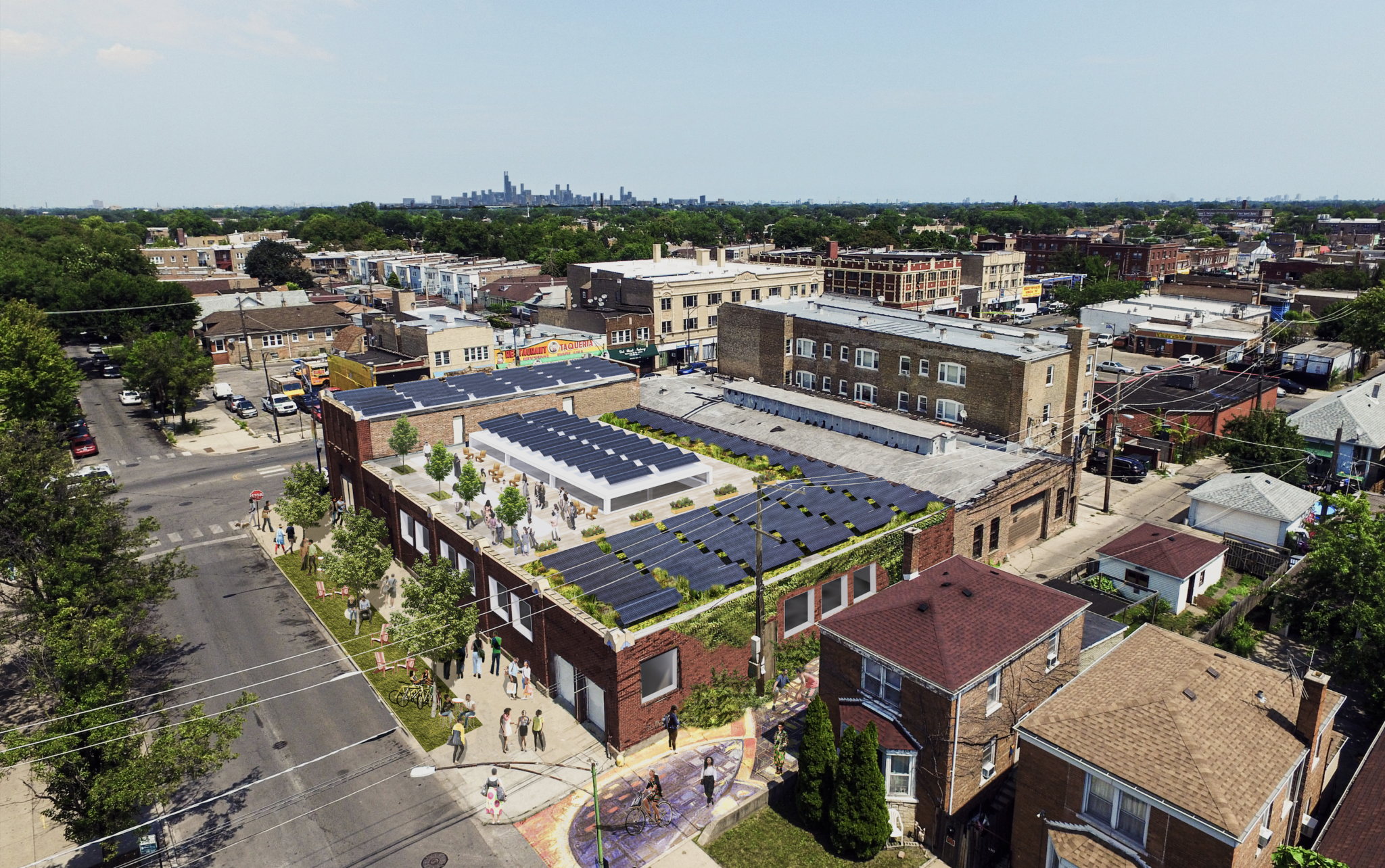Environmental Justice Projects to Support this Earth Day
by Zelda Mayer, Women Unite! Communications Manager
Earth Day. Between real climate disaster wrecking lives and corporate greenwashing to sell more shit you don’t need, just one day to hold our hopes for the planet can seem insignificantly small. While one day isn’t enough, we believe that even a day of collective action can be powerful. Each chance we have to add to the collective good adds up – if we choose to seize the opportunity.
At Women Unite!, we witness transformative work happening every day on the ground. Three of our sliding scale clients are leading ambitious community projects that have the potential to radically change the landscape in Chicago and steward a new phase of urban sustainability. Read on to see how you can support support their work this Earth Day.
Let’s create a little more good for our people and planet – one day at a time.
Urban Growers Collective’s Green Era Campus
Food waste is the #1 item filling up landfills and generating gasses harmful to the environment. What would happen if it stopped ending up in landfills and instead was given a second life on the Green Era Campus? Along with multiple entities and community partners, Urban Growers Collective is transforming 9 acres of brownfield into a thriving green community resource to solve the problem of too much food waste and not enough fresh food. Using innovative anaerobic digestion technology, the renewable energy facility on the Green Era Campus in Auburn Gresham breaks down food waste and transforms it into clean, renewable energy and nutrient-dense compost, offsetting 42,500 tons of carbon dioxide per year. Combining innovative technology with community resources, Green Era Campus will also include an urban farm and community education center which will create green jobs, grow and distribute affordable fresh produce, and create a healthier environment and more sustainable economy. Green Era is a unique community-based energy project that will uplift Chicago as a blueprint for the nation in developing an equitable green economy and sustainable future—all starting on the South Side.
Equiticity’s The Go Hub: A Community Mobility Center
Mobility is a key facet of environmental justice, and Equiticity is working to make safe, sustainable transportation accessible to all – starting in the North Lawndale neighborhood of Chicago. Only 38.6% of North Lawndale residents walk, bike, or take public transportation to commute to work – lower than most other Chicago neighborhoods. Life expectancy in North Lawndale is 68 years old, among Chicago’s lowest, and the neighborhood is considered to have a very high burden of environmental threats compared to the rest of Chicago. The Go Hub: A Community Mobility Center is Equiticity’s solution to these intersecting challenges. Based in North Lawndale, The Go Hub will provide residents with low-cost transportation rentals, sales, and training year-round, including bikes, scooters, rollerblades, and even car and ride sharing. The Go Hub will also build collective power and foster healing through community mobility rituals, advocacy and organizing, and programming centered on employment and youth education.
Blue Tin Production’s 63rd House
The fashion industry is one of the most destructive industries, contributing to 10% of total global greenhouse carbon emissions. While 750 million people globally are without access to clean drinking water, the fashion industry uses 1.5 trillion liters of water annually. And while 98% of fashion industry workers receive less than minimum wage, the top 15 richest people in fashion hold a sum of $442+ billion. Blue Tin exists to flip the script in fashion supply chains, creating a more sustainable and equitable alternative to fast fashion. They are currently raising funds to renovate an 11,250sq. ft. commercial building on the South Side of Chicago. This building will become a net-zero carbon emission community space as well as Blue Tin’s manufacturing studio, producing garments with low fabric waste, zero plastic purchased, and equitable wages and fair working conditions.



